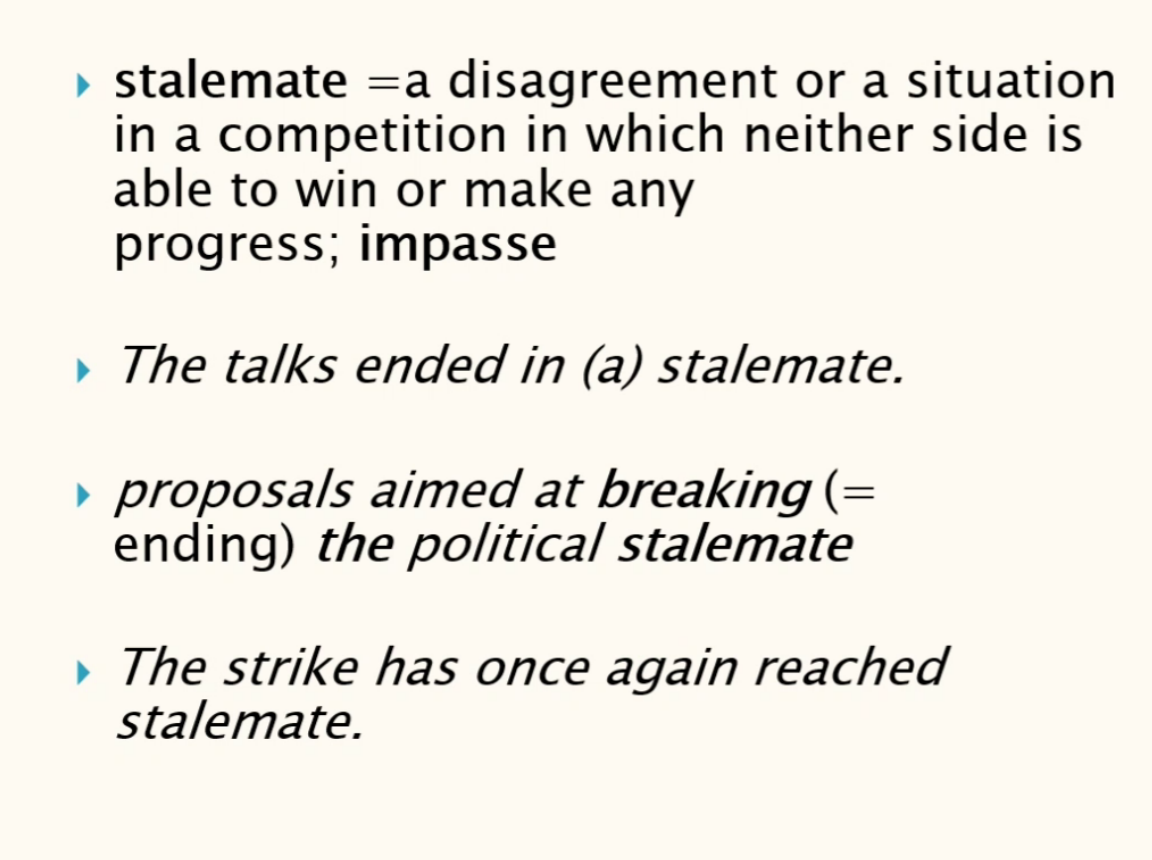10-17 bad
|
这个PNG文件内容包含了两个英语单词的定义,分别是 "defiant" 和 "manifestoes",以及一个单词 "defiance" 和一个不完整的单词 "manifesto"。下面是这些单词的英译汉和讲解: 1. defiant 2. defiance 3. manifesto 4. manifestoes 注意,"manifestoes" 可能是一个拼写错误,正确的复数形式应该是 "manifestos"。
|
|
|
这句话描述的是知识分子们涌入格林尼治村(Greenwich Village),并带来了他们的挑衅性宣言(defiant manifestoes),为那些想要逃避现实的人提供了一种模式和哲学上的辩护。 让我们逐部分讲解: 1. **and defiant manifestoes**:这里的 "defiant" 意味着挑战性的、大胆反抗的,而 "manifestoes" 是宣言的意思,通常指的是公开声明某种立场或意图的文件。"Defiant manifestoes" 则指那些带有反抗性质的宣言,可能是对社会现状、传统观念或其他权威的一种挑战。 2. **of the intellectuals crowding into Greenwich Village**:"Intellectuals" 指的是知识分子,这里特指那些思想前卫、追求自由和创新的知识分子。"Crowding into Greenwich Village" 描述的是这些知识分子纷纷涌入格林尼治村的情景。格林尼治村位于纽约市,历史上以其艺术家、作家和其他创意人士的聚集地而闻名,是一个文化自由和反主流文化的中心。 3. **gave them a pattern and a philosophic defense for their escapism**:这里的 "them" 指的是那些倾向于逃避现实的人。"Gave them a pattern" 意味着这些知识分子的宣言为逃避现实的人提供了一种模式或范例,让他们有样可循。"A philosophic defense" 则意味着这些宣言还为逃避现实的行为提供了哲学上的辩护,使其看起来更加合理和正当。 整句话的意思是,随着知识分子们带着他们的反抗性宣言涌入格林尼治村,他们不仅为那些想要逃避现实的人提供了一种行为模式,还从哲学上为他们的行为提供了辩护。这反映了一种社会现象,即在特定时期和地点,知识分子的思想和行动可以对周围人群产生影响,形成一种文化或社会运动。 |
|
|
这段内容描述了格林尼治村(Greenwich Village)的历史和变迁,以及它在不同时期对不同群体的吸引力。下面是对这段内容的逐句讲解: 1. **Greenwich Village, residential section of Lower Manhattan, New York City, U.S.** 2. **After 1910, It became a rendezvous for nonconformist writers, artists, students, bohemians, and intellectuals.** 3. **By the 1980s high-rise apartments had turned much of it into a fashionable neighbourhood, and many of its former residents had moved to the East Village (Lower East Side) and SoHo (the area south of Houston Street).** 整体来看,这段内容描绘了格林尼治村从一个反主流文化的聚集地转变为一个时尚社区的过程,以及这一变化如何影响了其居民的迁移。这反映了城市发展和社区变迁的普遍现象,即随着地区的发展和商业化,原有的文化特色和居民群体可能会发生变化。 |
|
|
这段内容描述的是20世纪30年代的大萧条(The Great Depression)及其对全球经济和社会文化的影响。下面是对这段内容的逐句讲解: 1. **until the crash of the world economic structure at the end of the decade called the party to a halt** 2. **The Great Depression, worldwide economic downturn that began in 1929 and lasted until about 1939.** 3. **It was the longest and most severe depression ever experienced by the industrialized Western world, sparking fundamental changes in economic institutions, macroeconomic policy, and economic theory.** 4. **Although it originated in the United States, the Great Depression caused drastic declines in output, severe unemployment, and acute deflation in almost every country of the world.** 5. **Its social and cultural effects were no less staggering, especially in the United States, where the Great Depression represented the harshest adversity faced by Americans since the Civil War.** 整体来看,这段内容概述了大萧条的起因、持续时间、经济影响以及社会文化影响,突出了它作为一场全球性经济危机的严重性和深远影响。 |
|
|
这段内容使用了“reveler”和“revel”这两个词来形象地描述了大萧条对当时社会气氛的影响。 1. **and forced the revelers to sober up and face the problems of the new age.**
2. **reveler=a person who is having fun in a noisy way, usually with a group of other people and often after drinking alcohol** 3. **revel=to spend time enjoying yourself in a noisy, enthusiastic way** 综合来看,这段内容通过使用“reveler”和“revel”这两个词,形象地描绘了大萧条之前社会上普遍存在的狂欢气氛,以及大萧条发生后,人们不得不从这种狂欢中清醒过来,面对严峻的经济和社会问题。这种对比强调了大萧条对社会心态和行为模式的巨大影响。 |
|
|
这段内容讲述的是第一次世界大战期间,美国年轻人对于战争的态度和行为。下面是对这段内容的逐句讲解: 1. **5A The rebellion started with World War I.** 2. **The prolonged stalemate of 1915-1916, the increasing insolence of Germany toward the United States, and our official reluctance to declare our status as a belligerent were intolerable to many of our idealistic citizens**
stalemate
increasing
## belligerent
3. **and, with typical American adventurousness enhanced somewhat by the strenuous jingoism of Theodore Roosevelt, our young men began to enlist under foreign flags.**
【【【【【【【 这段内容引用了西奥多·罗斯福(Theodore Roosevelt)的话,讨论了“jingoism”(极端民族主义)这个术语的含义,并将其与罗斯福的外交政策联系起来。下面是对这段内容的逐句讲解: 1. **The term was also used in connection with the foreign policy of Theodore Roosevelt.** 2. **In an October 1895 New York Times article, Roosevelt stated, “There is much talk about ‘jingoism’.** 3. **If by ‘jingoism’ they mean a policy in pursuance of which Americans will with resolution and common sense insist upon our rights being respected by foreign powers, then we are ‘jingoes’."** 整体来看,这段内容表明罗斯福并不反对“jingoism”这个术语,只要它意味着坚决而理智地维护国家的权利。这反映了罗斯福的外交政策立场,即在维护国家利益时既要坚定又要理性。这种立场在当时的美国社会中可能有一定的争议,但罗斯福的表述试图为这种政策辩护,使其听起来更加合理和正当。 】】】】】】】】
Theodore roosevelt
4. **In the words of Joe Williams, in John Dos Passos' USA, they "wanted to get into the fun before the whole thing turned belly up."**
three books
5. **For military service, in 1916-1917, was still a romantic occupation.**
6. **The young men of college age in 1917 knew nothing of modern warfare.**
整体来看,这段内容描绘了第一次世界大战期间,美国年轻人对于战争的浪漫化看法和冒险精神,以及他们对于战争现实的无知。这种态度最终促使许多年轻人在外国旗帜下入伍,参与到战争中去。 |
|
|
当然,以下是这段文字中的一些生词、难记的单词,以及它们的音标和注解: 1. **rebellion** 2. **stalemate** 3. **insolence** 4. **belligerent** 5. **adventurousness** 6. **jingoism** 7. **enlist** 8. **romantic** 9. **modern warfare** 10. **collegiate** 这些单词在阅读历史或社会文化相关的文章时可能会遇到,了解它们的含义和发音有助于更好地理解这类文本。 |
|
|
这段内容提供了第一次世界大战(World War I)的基本信息,包括战争的参与方、战争的特点以及战争造成的巨大损失。下面是对这段内容的讲解: 1. **The rebellion started with World War I.** 2. **World War I(1914-1918)** 3. **Germany, Austria-Hungary, Bulgaria and the Ottoman Empire (the Central Powers) fought against Great Britain, France, Russia, Italy, Romania, Canada, Japan and the United States (the Allied Powers).** 4. **Thanks to new military technologies and the horrors of trench warfare, World War I saw unprecedented levels of carnage and destruction.** 5. **By the time the war was over and the Allied Powers had won, more than 16 million people—soldiers and civilians alike—were dead.** 整体来看,这段内容概述了第一次世界大战的基本情况,包括战争的参与方、战争的特点以及战争造成的巨大损失。这些信息有助于我们理解第一次世界大战的重要性和对世界历史的影响。 |
|
|
|
|
| 2024年10月17日19:44:51 | |






















